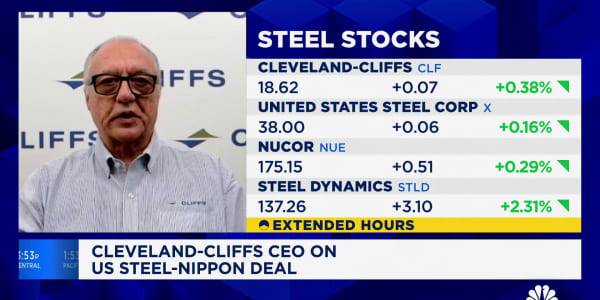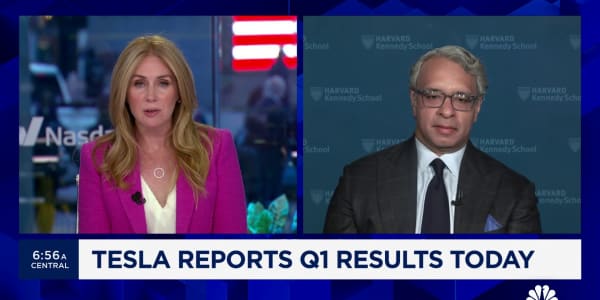The news that in connection with the Libor scandal gives rise to the question: what criminal charges are prosecutors likely to levy?
Until now, the official response to Libor has mostly been on the regulatory side. Barclays paid huge fines to settle claims by the Commodities Futures Trading Commission and U.K. regulators. Barclays' CEO, Bob Diamond, was forced to step down under regulatory pressure.
Agencies like the CFTC and the Securities and Exchange Commission do not have the authority to level criminal charges, although they do refer cases of possible criminality to the Justice Department. And it is clear from the Barclays settlement that the Justice Department has been investigating allegations of Libor manipulation and deceit.
Libor is a key global reference point for interest rates. It reportedly touches on some $500 trillion of transactions. Each day a number of the largest global banks submit their Libor “fixing,” a number that is supposed to represent what it would cost for them to borrow a reasonably large sum of money on that day. (For a really, really detailed explanation of this, see here.)
The Barclays settlement makes it clear that regulators have evidence that allegedly show Barclays traders colluding with other traders in an attempt to rig Libor to benefit their derivatives trades. It also shows that during the financial crisis Barlcays attempted to ease fears of regulators and markets about its financial health by submitting Libor numbers that intentionally understated the bank’s borrowing costs.
Sarbanes-Oxley Fraud
Traditional U.S. securities laws would not necessarily treat this behavior as criminal. Most likely this type of deception would be treated as a civil violation.
But the Sarbanes-Oxley Act of 2002, the reforms passed in the wake of the Enron scandal, expanded criminal sanctions under securities laws. It created a general criminal fraud provision that can cover almost any act of deception that might affect the price of the security of a public company.
The language of the statute, which is found in Title 18 of the U.S. Code, is pretty straightforward, at least as far as these things go:
Whoever knowingly executes, or attempts to execute, a scheme or artifice—
(1) to defraud any person in connection with any commodity for future delivery, or any option on a commodity for future delivery, or any security of an issuer with a class of securities registered under section 12 of the Securities Exchange Act of 1934 (15 U.S.C. 78l) or that is required to file reports under section 15(d) of the Securities Exchange Act of 1934 (15 U.S.C. 78o(d)); or
(2) to obtain, by means of false or fraudulent pretenses, representations, or promises, any money or property in connection with the purchase or sale of any commodity for future delivery, or any option on a commodity for future delivery, or any security of an issuer with a class of securities registered under section 12 of the Securities Exchange Act of 1934 (15 U.S.C. 78l) or that is required to file reports under section 15(d) of the Securities Exchange Act of 1934 (15 U.S.C. 78o(d));
shall be fined under this title, or imprisoned not more than 25 years, or both.
A bank that willfully creates a false impression of its financial health by misstating its borrowing rates may have violated the first of these Sarbox fraud provisions. Since false information about a bank’s financial health would likely boost the stock price of a company, this probably runs afoul of the law. In legal terms, the bank may have executed “a scheme or artifice” intended “to defraud any person in connection with…any security” of a public company.
Note that unlike insider trading laws or many other criminal provisions of securities laws, under subsection (1) there’s no direct requirement that the fraud be undertaking in connection with the sale of securities. Basically, intentionally lying about something that is likely to affect the pricing of your company’s stock is probably enough for a finding criminality.
Libor deception motivated by derivatives trading may violate both sections of this provision. A trader who talks the Libor submitters into rigging the daily fixing may have engaged in a scheme to defraud the counterparty of his interest rate swaps, which the law considers a commodity. What’s more, since the Libor manipulation allegedly took place over many years and with shocking regularity, prosecutors would likely argue that the bank’s sales of interest rate swaps were fraudulent from the get go. If you know you’re selling a swap on a rate you can (or think you can) deceptively manipulate, that’s fraud.
Bank Fraud
Some traditional criminal law provisions may also apply against any derivatives traders who attempted to manipulate the Libor submission of their bank or another bank. For instance, the crime of “bank fraud” has been on the books for decades. Here’s the language:
Whoever knowingly executes, or attempts to execute, a scheme or artifice—
(1) to defraud a financial institution; or
(2) to obtain any of the moneys, funds, credits, assets, securities, or other property owned by, or under the custody or control of, a financial institution, by means of false or fraudulent pretenses, representations, or promises;
shall be fined not more than $1,000,000 or imprisoned not more than 30 years, or both.
If you are a derivatives trader with a financial institution on the other end a Libor-linked trade, attempting to manipulate Libor is a pretty clear instance of bank fraud.
Note that for each of these criminal violations you do not actually have to successfully manipulate Libor (something that's very hard to do) or even succeed in getting your submitter to put in a phony number. It’s enough to attempt to manipulate the numbers.
The Sherman Antitrust Act
Libor manipulators could also face criminal charges under an even older law: the Sherman Act, the U.S.’ principal antitrust statute. Under the Sherman Act, price-fixing conspiracies are illegal and punishable by up to 10 years in prison.
The Barclays settlement makes clear allegations of Libor manipulating collusion between Barclays traders and traders at three other banks. It’s almost certain that the Justice Department’s antitrust division is investigating these cases.
In short, the Libor scandal could result in criminal cases that produce decades long criminal sentences.
Follow John on Twitter. (Market and financial news, adventures in New York City, plus whatever is on his mind.) You can email him at john.carney@nbcuni.com.
We also have two NetNet Twitter feeds. Follow CNBCnetnet for the best of the days posts, including breaking news. Follow NetNetDigest for a feed of every single post each day.
You can also be our friend on Facebook. Or subscribe to John's Facebook page.
We're on Google Plus too! Click here for John's Google+ page.
Questions? Comments? Tips? Email us ator send a text message to: 917-740-8477.
Call us at 201-735-4638.






